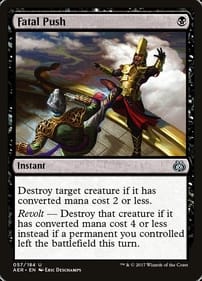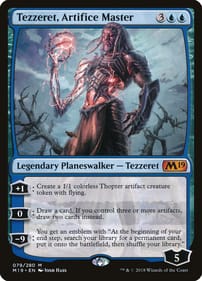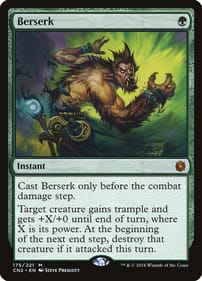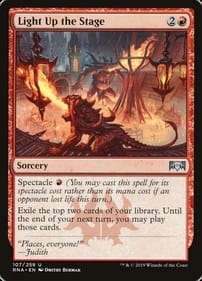Description
In the 2400s, mankind begins to terraform the planet Mars. Giant corporations, sponsored by the World Government on Earth, initiate huge projects to raise the temperature, the oxygen level, and the ocean coverage until the environment is habitable. In Terraforming Mars, you play one of those corporations and work together in the terraforming process, but compete for getting victory points that are awarded not only for your contribution to the terraforming, but also for advancing human infrastructure throughout the solar system, and doing other commendable things.
The players acquire unique project cards (from over two hundred different ones) by buying them to their hand. The projects (cards) can represent anything from introducing plant life or animals, hurling asteroids at the surface, building cities, to mining the moons of Jupiter and establishing greenhouse gas industries to heat up the atmosphere. The cards can give you immediate bonuses, as well as increasing your production of different resources. Many cards also have requirements and they become playable when the temperature, oxygen, or ocean coverage increases enough. Buying cards is costly, so there is a balance between buying cards (3 megacredits per card) and actually playing them (which can cost anything between 0 to 41 megacredits, depending on the project). Standard Projects are always available to complement your cards.
Your basic income, as well as your basic score, is based on your Terraform Rating (starting at 20), which increases every time you raise one of the three global parameters. However, your income is complemented with your production, and you also get VPs from many other sources.
Each player keeps track of their production and resources on their player boards, and the game uses six types of resources: MegaCredits, Steel, Titanium, Plants, Energy, and Heat. On the game board, you compete for the best places for your city tiles, ocean tiles, and greenery tiles. You also compete for different Milestones and Awards worth many VPs. Each round is called a generation (guess why) and consists of the following phases:
1) Player order shifts clockwise.
2) Research phase: All players buy cards from four privately drawn.
3) Action phase: Players take turns doing 1-2 actions from these options: Playing a card, claiming a Milestone, funding an Award, using a Standard project, converting plant into greenery tiles (and raising oxygen), converting heat into a temperature raise, and using the action of a card in play. The turn continues around the table (sometimes several laps) until all players have passed.
4) Production phase: Players get resources according to their terraform rating and production parameters.
When the three global parameters (temperature, oxygen, ocean) have all reached their goal, the terraforming is complete, and the game ends after that generation. Count your Terraform Rating and other VPs to determine the winning corporation!
Expansions:
Terraforming Mars: Venus Next, the second expansion for the Terraforming Mars base game, has players building flying cities and making the atmosphere more hospitable on the deadly planet Venus.
In Venus Next, the World Government chooses to also fund the terraforming of Venus. Around 50 project cards and 5 corporations are added, with a special focus on how to make Venus habitable. With the new floater resource, a new milestone, a new award, a new tag, and a new terraforming parameter, players are given more paths to victory and an even more varied play.
Our world has widened before us. Corporations expand their operations to all corners of the solar system in pursuit of minerals and resources. Most places are not suited for terraforming, but building colonies may greatly improve your income and your possibilities in achieving that higher goal — the terraforming of Mars. Send your trade fleet to distant moons! Colonize the clouds of Jupiter! And let your Earth assets propel you to success!
Terraforming Mars: Colonies, an expansion for Terraforming Mars that can be played with only the base game or with any combination of expansions, lets you visit the outer solar system. It features colony tiles where you can build colonies and send your trade fleet. It also includes new cards and corporations.
Turmoil, the fifth expansion to Terraforming Mars, takes players back to Mars, and the struggle for control and progress of human society on a big and dangerous planet.
The expansion includes new corporations, new projects, and a new type of cards — Global Events, from dust storms to riots to rising alloy demand — that give you something to plan for 3 generations in advance.
At the heart of this is the political arena of the Terraforming Committee. A new action allows players to add delegates to different parties, the first delegate each generation being free, and additional ones costing 5 MC. Neutral delegates are added by the global events, representing the wishes and trends of society.
When a player (even the neutral player) has more delegates in a party than any other player, that player takes over the party leader seat for that party, and when a party has more delegates than any other party, it becomes dominant. The dominant party will become ruling during the next generation, imposing its one-time bonus, its ongoing policy, and granting chairmanship for its party leader, awarding that player 1 terraform rating.
Party: Bonus: Policy:
Kelvinist 1MC/heat production 10MC -> 1 heat production + 1 energy production
Scientist 1MC/science tag 10MC -> draw 3 cards (once per player)
Unity 1MC/planet tag Titanium is worth +1MC
Mars First 1MC/building tag Placing a tile on Mars gives 1 steel
Greens 1MC/biological tag placing a greenery tile gives 4MC
Reds 1TR for the lowest player Increasing TR in the action phase costs +3MC
The political arena also determines the players' influence, which can be used to moderate or enhance the effect of the current global event. Influence is gained from being the chairman of the Committee, being party leader in the dominant party, and for having a non-leader delegate in the dominant party.
In order to pay for all these new bonuses, the Committee is revising the terraform rating, lowering it for all players by 1 step each generation.
In Turmoil, players can try to force their own agenda, or push it in a more moderate, economic way. They can play to mitigate the global events with influence, or adjust their play to better take advantage of them. And they can anticipate the competing players' agendas and try to benefit from them, or counteract them.
Turmoil is an expert expansion - be prepared to meet the full spectrum of human civilization in the era of terraforming Mars!
—description from publisher
Payment & Security
Your payment information is processed securely. We do not store credit card details nor have access to your credit card information.















